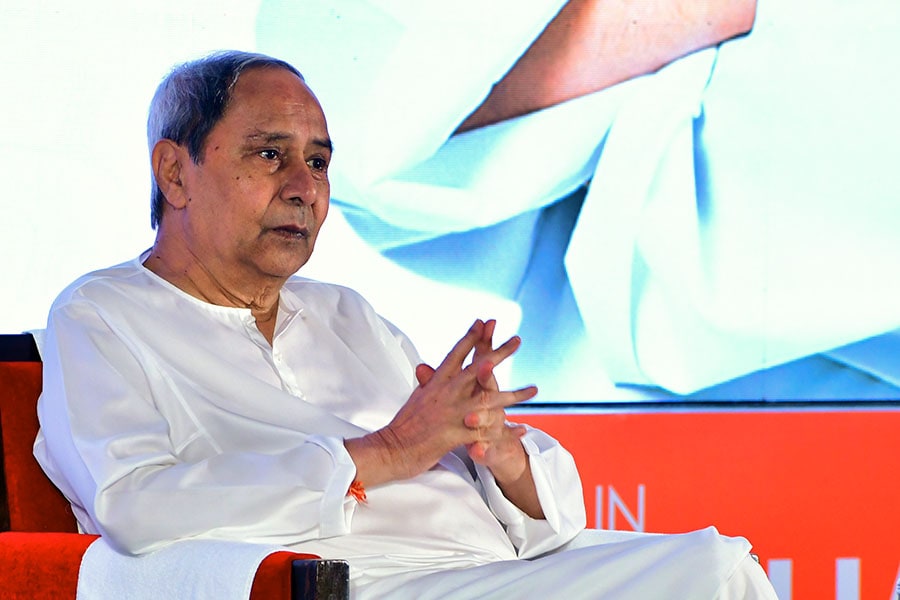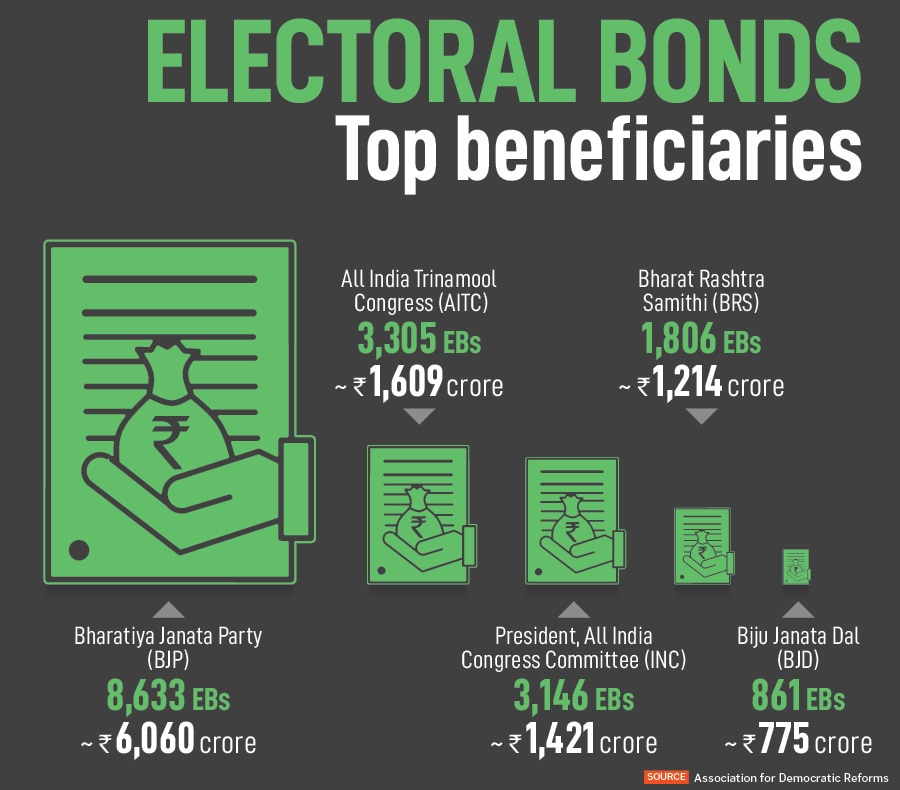
Aditya Birla Group, Jindal Steel and Power among largest buyers of electoral bonds in resource-rich Odisha
Mining, steel and aluminium companies are top donors to the Naveen Patnaik-led Biju Janata Dal. The ruling party of Odisha is the fifth-largest beneficiary of electoral bonds in the country, at Rs 775.5 crore between April 2019 and February 2024
 Odisha’s Biju Janata Dal (BJD) received Rs 775.5 crore by encashing around 861 electoral bonds to 42 donors between April 2019 and February 2024. Most of the donors are mining, iron, aluminium and steel companies that have multi-crore projects in the state, which is rich in mineral reserves.
Image: Bhushan Koyande/Hindustan Times via Getty Images
Odisha’s Biju Janata Dal (BJD) received Rs 775.5 crore by encashing around 861 electoral bonds to 42 donors between April 2019 and February 2024. Most of the donors are mining, iron, aluminium and steel companies that have multi-crore projects in the state, which is rich in mineral reserves.
Image: Bhushan Koyande/Hindustan Times via Getty Images
Odisha’s Biju Janata Dal (BJD) received Rs 775.5 crore by encashing around 861 electoral bonds to 42 donors between April 2019 and February 2024. Most of the donors are mining, iron, aluminium and steel companies that have multi-crore projects in the state, which is rich in mineral reserves.
The Election Commission of India (ECI) released a detailed list of electoral bond buyers and recipient political parties on March 21. The data, provided by the State Bank of India following orders of the Supreme Court, includes bond numbers that help match donors with political parties whose bonds they purchased.
BJD, led by Naveen Patnaik, who, at 77, is one of the longest-serving chief ministers in the country, stands fifth in line at the national level in terms of value of electoral bonds encashed by political parties. It is preceded by the Bharatiya Janata Party (BJP), the All India Trinamool Congress (AITC), the President, All India Congress Committee (INC), and the Bharat Rashtra Samithi (BRS).
Leading the group of donors to the BJD is Aditya Birla Group-owned Essel Mining and Industries Limited (EMIL), which donated Rs 174.5 crore through electoral bonds. The company started its operations in 1950 with iron-ore mining in Odisha and is now India’s largest mine developer and operator, according to its website. EMIL has an iron ore beneficiation and pelletisation plant in the Keonjhar district of Odisha and operates the Bhubaneswari Open Cast Project (OCP), which is the largest coal mine in the state.
Other Aditya Birla Group companies that have purchased electoral bonds of the BJD include Grasim Industries (Rs 10 crore), its subsidiary UltraTech Cement (Rs 10 crore), and Utkal Alumina International (Rs 70 crore). Utkal Alumina, the third-largest donor to the BJD, operates in the Rayagada district of Odisha, where its operation comprises “a 2.12 MTPA [million tonnes per annum] alumina refinery, captive Baphlimali bauxite mines of 8 MTPA with valid lease title up to February 2048, and a captive co-generation power plant of 90 MW along with a 5 MW solar power plant,” according to the company website.







